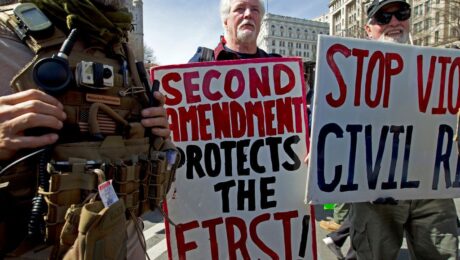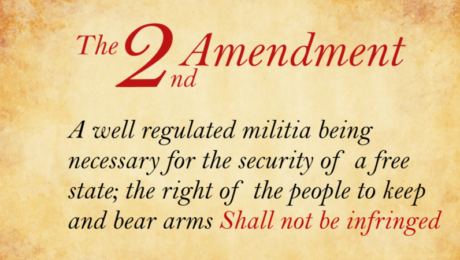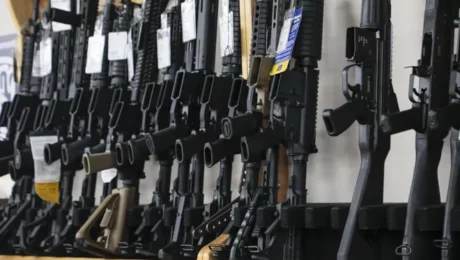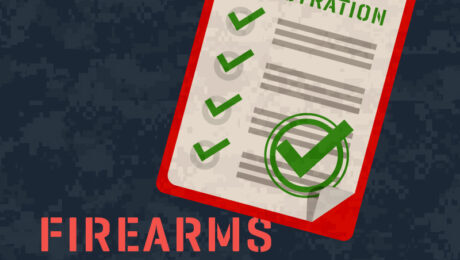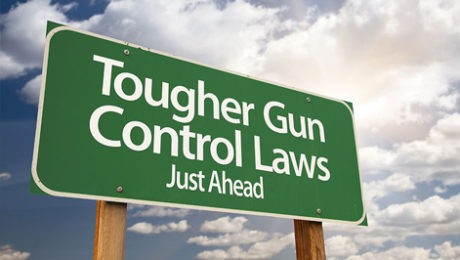Strengthening the Voice: The Need for Increased Gun Advocacy in the United States
Title: Strengthening the Voice: The Need for Increased Gun Advocacy in the United States
In the United States, the right to bear arms has been a fundamental aspect of the nation’s identity since its inception. As the ongoing debate surrounding gun rights and regulations continues to shape public discourse, there is a growing need for increased gun advocacy. This advocacy is essential for preserving individual freedoms, fostering responsible gun ownership, and upholding the principles upon which the country was founded.
1. Preserving Individual Liberties:
The right to bear arms is enshrined in the Second Amendment of the U.S. Constitution, reflecting the Founding Fathers’ belief in the importance of an armed citizenry as a safeguard against tyranny. Advocates assert that this right is essential for preserving individual liberties, ensuring that law-abiding citizens have the means to protect themselves, their families, and their property.
2. Empowering Responsible Gun Owners:
Increased gun advocacy can empower responsible gun owners, encouraging them to engage in safe and lawful practices. Education and awareness programs supported by advocacy groups can promote responsible firearm usage, emphasizing the importance of proper training, secure storage, and adherence to local laws. By fostering a culture of responsibility, advocates contribute to safer communities.
3. Supporting Rural Communities:
In rural areas, where law enforcement response times can be lengthy, responsible gun ownership is often seen as a necessary means of self-defense. Advocacy efforts can address the unique needs of rural communities, ensuring that individuals in these areas have access to the tools they need to protect themselves effectively.
4. Fostering Informed Dialogue:
Increased advocacy can facilitate informed dialogue between policymakers, law enforcement, and citizens. By actively engaging in conversations about gun rights, advocates can provide valuable perspectives that contribute to well-rounded and evidence-based policymaking. Inclusive discussions are vital for finding common ground and creating effective, fair, and responsible regulations.
5. Safeguarding Against Overreach:
Advocacy plays a crucial role in safeguarding against potential government overreach. By actively participating in the political process, gun advocates can ensure that proposed legislation respects the rights of responsible gun owners and does not unduly infringe upon individual freedoms. Vigilant advocacy helps maintain the delicate balance between public safety and personal liberty.
6. Upholding Constitutional Values:
Increased gun advocacy serves to uphold the constitutional values upon which the United States was built. Advocates argue that any erosion of Second Amendment rights could set a precedent, potentially leading to the erosion of other constitutional liberties. By defending the right to bear arms, advocates actively preserve the broader framework of individual freedoms that defines the nation.
Conclusion:
In a nation founded on the principles of liberty and individual rights, increased gun advocacy is essential. By promoting responsible gun ownership, fostering informed dialogue, and safeguarding against potential overreach, advocates contribute to a society where the rights of law-abiding citizens are respected and protected. As the United States continues to grapple with the complexities of gun rights and regulations, an active and informed advocacy community is vital for preserving the balance between personal freedoms and public safety.
- Published in Articles
The Vital Importance of the Second Amendment: Safeguarding Freedom and Security
Title: The Vital Importance of the Second Amendment: Safeguarding Freedom and Security
The Second Amendment of the United States Constitution, which guarantees the right to bear arms, has been a topic of passionate debate since its inception. In the contemporary landscape, where discussions about gun control and individual rights continue to shape public discourse, it is essential to understand the enduring need for the Second Amendment in preserving the values upon which the nation was founded.
Preserving Individual Liberties:
One of the core principles behind the Second Amendment is the preservation of individual liberties. The Founding Fathers, recognizing the importance of an armed citizenry as a check against potential tyranny, enshrined the right to bear arms in the Constitution. This fundamental right empowers individuals to protect themselves, their families, and their property, fostering a sense of self-reliance and personal responsibility.
Deterrent Against Crime:
Armed citizens serve as a deterrent against criminal activities. The knowledge that potential victims might be armed encourages would-be perpetrators to think twice before committing violent crimes. Responsible gun owners, who have undergone background checks and training, contribute to community safety by being prepared to defend themselves and others in emergency situations.
Promoting Civic Responsibility:
The Second Amendment fosters a sense of civic responsibility among citizens. Responsible firearm ownership involves understanding the law, safety protocols, and ethical considerations. This knowledge encourages a culture of responsible gun usage, ensuring that firearms are used legally and ethically, which, in turn, promotes a safer society.
Preserving National Security:
In times of national crisis or emergency, an armed citizenry can play a crucial role in preserving national security. History has shown that in moments of peril, communities have rallied together, with armed citizens standing alongside law enforcement and the military to protect their fellow citizens and defend the nation.
A Symbol of Freedom:
The Second Amendment stands as a symbol of the freedoms and rights that define the United States. It embodies the spirit of individual liberty and personal empowerment, reminding citizens of their inherent rights to protect themselves and their way of life. The presence of this amendment serves as a reminder of the importance of preserving the balance between government authority and individual freedoms.
The Second Amendment remains a cornerstone of American democracy, embodying the principles of freedom, responsibility, and self-preservation. While the debate surrounding gun control and Second Amendment rights continues, it is essential to recognize the historical context and enduring significance of this fundamental right. By fostering responsible gun ownership, promoting civic education, and engaging in thoughtful dialogue, society can uphold the values enshrined in the Second Amendment while working towards a safer and more secure future for all.
- Published in Articles
Examining the Democrats’ Advocacy for Stricter Gun Control Measures
Title: Examining the Democrats’ Advocacy for Stricter Gun Control Measures
In recent years, the Democratic party in the United States has been at the forefront of advocating for more comprehensive gun control legislation. While the party’s stance has been met with both fervent support and vehement opposition, understanding the motivations behind their push for stricter gun control measures is crucial in comprehending the ongoing national debate surrounding firearms.
Background:
The Democrats’ advocacy for stricter gun control measures is rooted in their concern for public safety and the prevention of gun-related violence. High-profile incidents of mass shootings and rising gun-related crime rates have propelled the party to actively pursue policies aimed at curbing the accessibility of firearms, particularly for individuals who might pose a threat to society.
Key Proposals:
Democrats have proposed various measures to address gun violence. Universal background checks, closing the gun show loophole, reinstating the assault weapons ban, and implementing red flag laws (which allow temporary firearm removal from individuals deemed a risk to themselves or others) are some of the primary initiatives on their agenda. Supporters argue that these policies are essential to preventing individuals with malicious intent from obtaining firearms, thereby reducing the likelihood of tragic incidents.
Public Safety Concerns:
Proponents of the Democrats’ push for gun control measures emphasize the need for comprehensive background checks to prevent individuals with criminal records or mental health issues from acquiring firearms. They also argue that restrictions on high-capacity magazines and assault weapons can minimize the potential damage inflicted during mass shootings, potentially saving lives.
Second Amendment Concerns:
Opponents of the Democrats’ proposals often cite concerns about Second Amendment rights, asserting that stricter gun control measures infringe upon law-abiding citizens’ constitutional right to bear arms. They argue that responsible gun owners should not be penalized for the actions of a few, and that enforcing existing laws more effectively would be a more reasonable approach to addressing the issue of gun violence.
The Path Forward:
As the Democrats continue their push for stricter gun control measures, finding common ground between advocates for public safety and defenders of Second Amendment rights is crucial. Many agree that a comprehensive dialogue, involving input from various stakeholders, is necessary to address the complex issue of gun violence in the United States. By focusing on evidence-based policies and engaging in respectful discourse, there is potential for meaningful progress that prioritizes both individual freedoms and the safety of the broader community.
In the ongoing debate about gun control, it is essential to weigh the legitimate concerns of responsible gun owners with the imperative to prevent violence and enhance public safety. Finding a balanced approach that respects constitutional rights while addressing the challenges posed by gun-related incidents is a shared responsibility that requires careful consideration and collaboration from all parties involved.
- Published in Articles
Navigating the Crossroads: The Current State of the Firearms Industry
Title: Navigating the Crossroads: The Current State of the Firearms Industry
In an era defined by evolving technologies, shifting cultural attitudes, and complex legislation, the firearms industry finds itself at a pivotal crossroads. Balancing tradition with innovation, safety with individual rights, the industry is undergoing significant transformations. Let’s delve into the nuanced landscape, exploring the challenges, innovations, and social impact that define the current state of the firearms industry.
Embracing Innovation:
The firearms industry is witnessing a wave of technological innovation. Smart guns, equipped with biometric security measures, are making waves, promising safer firearm ownership without compromising security. Additionally, advancements in materials and manufacturing techniques are enhancing the durability, precision, and aesthetics of firearms, catering to a diverse consumer base.
Stricter Regulations and Responsible Practices:
Heightened concerns about public safety have led to increased scrutiny and regulations surrounding firearms. Stricter background checks, waiting periods, and limitations on high-capacity magazines are becoming more prevalent. Moreover, the industry is actively promoting responsible ownership through educational initiatives, emphasizing the importance of proper training and secure storage to prevent accidents and unauthorized use.
Shifting Cultural Perceptions:
Cultural attitudes toward firearms are evolving. While some still view guns as symbols of freedom and self-defense, others are advocating for stricter gun control measures, reflecting a broader societal shift toward prioritizing safety. Initiatives aimed at reducing gun violence, coupled with passionate advocacy from various groups, are shaping public discourse and influencing policy decisions.
Economic Impact and Job Market:
The firearms industry continues to be a significant contributor to the economy, generating billions of dollars in revenue and providing employment opportunities across various sectors. From manufacturing and research to retail and training, the industry sustains a diverse job market. However, economic fluctuations and regulatory changes pose challenges, requiring adaptability and strategic planning from businesses within the sector.
International Perspectives:
Internationally, the firearms industry faces diverse challenges. Different countries have varying regulations, cultural attitudes, and market demands, requiring industry players to navigate complex global landscapes. Export regulations, geopolitical tensions, and international collaborations impact the industry’s trajectory, necessitating a nuanced approach to global business strategies.
Conclusion:
As the firearms industry stands at the intersection of tradition and progress, it must strike a delicate balance between innovation, safety, and individual rights. Adapting to evolving societal norms and technological advancements while upholding responsible practices is essential for the industry’s sustainable future. By fostering dialogue, embracing innovation, and promoting safety, the firearms industry can navigate these challenges and continue to play a vital role in both national economies and individual lives.
- Published in Articles
California: New Bill Opens Up Our Industry To Law Suits!
Assembly members Phil Ting, D-San Francisco, Chris Ward, D-San Diego, and Mike A. Gipson, D-Carson announced Tuesday they’ve filed and are fighting to pass Assembly Bill 1594. The new CA bill amends the current statute to allow private right of action against domestic gun manufacturers based on public nuisance laws. (more…)
- Published in Articles, SHOT Show, Uncategorized
H.R.127 — 117th Congress (2021-2022)
This bill establishes a process for the licensing and registration of firearms. It also prohibits the possession of certain ammunition and large capacity ammunition feeding devices.
First, the Bureau of Alcohol, Tobacco, Firearms and Explosives must establish (1) a licensing system for the possession of firearms or ammunition, and (2) a registration system for firearms. (more…)
- Published in Articles, SHOT Show, Uncategorized
Firearms Licensing Bill Was The #5 Most Read Bill of 2021!
Chris McInally
11/7/21
The Sabika Sheikh Firearm Licensing and Registration Act was the #5 most read bill of 2021! This should alarm industry proponents as our nation continues to push their restrictive gun agenda.
US HR127, or the Sabika Sheikh Firearm Licensing and Registration Act, was proposed in January of 2021 and has been read 22,862 times this year. This bill, which is still in committee, aims to create a national firearm registry, set a minimum gun ownership age at 21, and require licensing and psychological evaluations. (more…)
- Published in Articles, SHOT Show, Uncategorized
SHOT Show 2023 Coverage
Firearms Industry News will be on-site and ready to provide you with fresh coverage from Media Day at the Range and the 2022 SHOT Show. Please check back for up to date info and media. (more…)
- Published in Articles, SHOT Show, Uncategorized
Orange County Shooting Range Field Time Review
After visiting the range for the first time a month back, I was extremely impressed with both the layout, cleanliness, and modernization of this range in comparison to many of the surrounding offerings. They allow rifle and pistol on the lines (excluding .50 of course), and the ventilation system was definitely something the owners should be proud of (no lead poisoning worries here). (more…)
- Published in Articles, SHOT Show, Uncategorized
New 2019 California Gun Bill Information
ATTENTION CALIFORNIA GUN OWNERS! STAY UPDATED ON CURRENT LEGISLATION!
The below bills were signed into law:
Assembly Bill 1135 and Senate Bill 880 would make changes of monumental scale to California’s firearm laws by reclassifying hundreds of thousands of legally owned semi-automatic rifles as “assault weapons.” This legislation effectively outlaws magazine locking devices, more commonly known as “bullet buttons”. These are constitutionally protected firearms that have no association with crime. These changes would happen quickly with great individual costs to many gun owners and without public notice. Governor Brown vetoed similar legislation in 2013. (more…)
- Published in Articles

